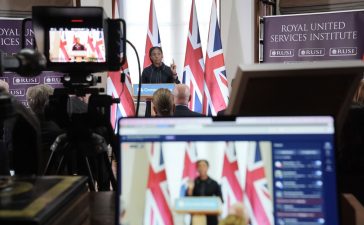Today’s first-time buyers are typically paying 191 percent more than their parents to get a foot on the property ladder.
The figure, which represents a rise on top of normal inflation, is further evidence of the punishing impact of spiralling prices.
At the same time, the typical price of a first home today is some 8.1 times average earnings, which is up from a multiple of 4 times earnings in the 1990s.
Such is the high cost that the average first-time buyer today is aged 33, according to the research from the UK’s largest conveyancing services firm.
In 1995 a first-time buyer was typically paying £38,806 to get the keys to their own front door. They would have put up a 15 percent deposit of £5,821.
When adjusted for inflation, this is equivalent to purchasing a house in today’s market for just £76,833 – and putting up a deposit of £11,525.
However, today the average price paid by a first-time buyer actually sits at £223,554, requiring a deposit of £33,533.
Therefore, first-time buyers today are having to pay 191 percent more than their parents did in 1995 even after adjusting for inflation.
The research was commissioned by My Home Move Conveyancing, which said all the evidence makes clear young buyers have been forced to take on higher levels of debt in relation to their income with each passing decade.
In the 1990s, young buyers were typically borrowing four times their income, but this rose to 6.4 in the 2000s and 7.1 in the 2010s.
It said: “Now, in the 2020s, an average house price of £280,660 and an average annual salary of £34,637 means that the price of a home is 8.1 times the average earnings – more than double compared to the 1990s.”
Director of My Home Move Conveyancing, Alistair Singer, said the increase means that, increasingly, only people given a helping hand by the bank of mum and day, can buy a first property.
“We often hear about how much more affordable the world was when our parents were younger and the cost of getting on the ladder is certainly one area where they were far better off than their children are today,” he said.
“Today’s first-time buyers are facing a significant struggle as house prices have boomed to record highs in recent years, while earnings have struggled to keep pace.
“Add to this the initial barrier of a higher mortgage deposit, the new norm of significantly higher mortgage rates and often tighter criteria from lenders and it’s a very tough time indeed when it comes to buying your first home.”
He added: “For many, it’s a task that’s only achievable with the help of the bank of Mum and Dad or loved ones and there’s certainly no shame in that given today’s first-time buyers are paying 191 percent more than their parents did.”
Looking at the wider housing market, the research found that the estimated average UK house price was £60,551 in the 1990s, which would equate to £119,189 today, after allowing for the normal rate of inflation over this period.
However, the actual average house price today is much higher £280,660.
Looking at wages, the average annual salary in the 90s was £15,034, which equates to £29,593 today once adjusted for inflation. The actual average today is £34,637.









